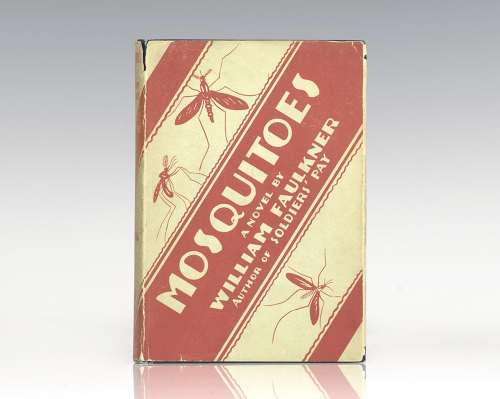William Faulkner has become one of the most celebrated writers in American literature. Although he published his first book, Soldier’s Pay, in 1926 and his second book Mosquitoes in 1927, he was not largely known as a writer until over twenty years later.

In 1927, Faulkner wrote his first novel to be set in his fictional Yoknapatawpha County (based on his own Lafayette County, Mississippi, where he spent most of his life), and came to be the setting for many of his future works. The book was titled Flags in the Dust, but it was rejected by publishers. After letting his literary agent significantly edit the text, it was published in 1929 under the title Sartoris.
Around that time, due to the disappointment of his lack of success, he became indifferent to his publishers, deciding to write in a more experimental and stream of consciousnesses style and just write for himself. He insisted that his editor not edit The Sound and the Fury in any way, even with regard to punctuation. Although a publisher, Jonathan Cape and Harrison Smith, decided to take a chance on the book, it is believed that the publisher limited the initial printing run to 1,789 copies due to his lack of previous commercial success. Initially, The Sound and the Fury, was not received well, but after his sixth novel, Sanctuary, was published in 1931 to critical acclaim, his previous books began to also receive attention, as well as some financial prosperity. Due to the challenging nature of the novels, however, many of his books at the time had very little readership, and by 1945, almost all of his books were out of print.
The turning point for Faulkner really came with publication in 1946 of some of his works in The Portable Faulkner and his 1949 Nobel Prize. He then went on to win the Pulitzer Prize for two of his works, A Fable and his last novel The Reivers (1962), which was awarded posthumously. About a month after its publication, he died at the age of 64 due to complications from a fall from his horse.
Faulkner never would have imagined his future influence and success. Modern Library has ranked The Sound and the Fury, As I Lay Dying, and Light in August on its list of the 100 best English-language novels of the 20th century.
We currently have in stock an amazing collection of Faulkner works that were uniformly bound by Faulkner as a gift for his only child, Jill Faulkner. Each one is signed and inscribed to her by Faulkner as “pappy”.
After his death, he became one of the mostly widely translated and studied American authors of his generation outside the United States. He also served as forefather of literary motifs that have spread throughout the world. He has been particularly influential in developing countries, where he impacted authors such as Mario Vargas Llosa, Isabel Allende, Carlos Fuentes, Wole Soyinka, Jorge Luis Borges, and most notably Gabriel García Márquez. These authors were drawn to Faulkner’s stories of the struggle of human beings against social and material decadence as well as the way he could take ordinary life in a simple town into an almost magical world that was entirely new, filled with myth, folk tales, history and the supernatural.
Although Faulkner’s writings would not be considered more under the genre of southern gothic versus magical realism, he was inspirational to those who wrote in this style. García Márquez, called him “my master William Faulkner” in his own Nobel speech, and like Faulkner, attempted seek to understand the complexity of the human condition amid civil strife and exploitation. Also, similarly to Faulkner’s mysterious town of Jefferson, Mississippi, García Márquez invented Macondo based it on his childhood town of Aracataca, Columbia. Both authors use these locals as a microcosm for society as a whole.
In Faulkner’s Nobel Prize Speech, he said the following, which perhaps summarizes why so many authors from world were drawn to him:
“I believe that man will not merely endure: he will prevail. He is immortal, not only because he alone among creatures has an inexhaustible voice, but because he has a soul, a spirit capable of compassion and sacrifice and endurance…the poet’s voice need not merely be the record of man, it can be one of the props, the pillars to help him endure and prevail.”

First edition of Faulkner’s Nobel Prize Speech in the original wrappers.
To view all Faulkner rare books that we currently have for sale, click here.


















